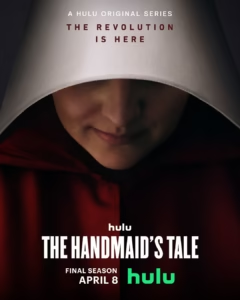Incestflox: A Critical Exploration of Controversial Themes in Media and Culture
In the age of digital media, taboo and controversial topics have increasingly entered mainstream narratives, sparking debates on ethics, psychology, and storytelling. One such term that has recently emerged is “Incestflox“ — a cultural keyword that seems to encapsulate the growing attention to incestuous themes in media, literature, and online communities.
Though inherently disturbing for many, this topic demands an objective and analytical exploration. This article delves into the origins of the term, its portrayal in media, psychological and ethical considerations, and the role of digital communities in shaping these narratives.
Understanding the Term “Incestflox”
The word “Incestflox” appears to be a fusion of “incest” and “flock,” implying a collective interest or thematic trend in incest-related content, especially within digital media. It could also reflect a growing conversation — and concern — about the prevalence or visibility of incestuous storylines in films, shows, and literature.
Historically, incest has been portrayed as tragic, cursed, or morally ruinous. Yet, in contemporary narratives, it is often approached with a more ambiguous or normalized lens, sometimes sparking discomfort, critique, or even fascination.
Historical and Literary Background
Classical Literature
- Oedipus Rex by Sophocles remains one of the most iconic depictions of accidental incest, rooted in prophecy, fate, and moral collapse.
- In Shakespeare’s Hamlet, subtle references to Queen Gertrude and Claudius suggest unsettling undertones, adding psychological depth to Hamlet’s turmoil.
Such stories used incest as a symbol of human frailty, divine punishment, or tragic irony — never romanticized, but rather cautionary.
Modern Media
- Game of Thrones brought incestuous relationships into mainstream discussion, particularly through Jaime and Cersei Lannister. While controversial, it opened debates on the boundaries of moral ambiguity in storytelling.
- Flowers in the Attic by V.C. Andrews tackled the theme in a haunting, psychologically complex narrative, shedding light on trauma, abuse, and powerlessness.
While some modern works use incest to explore power dynamics or trauma, others have been criticized for romanticizing or trivializing it, which raises questions about media responsibility.
Psychological Foundations and Cultural Taboos

From a psychological perspective, the repulsion toward incest is often attributed to the Westermarck effect — an evolutionary mechanism that discourages inbreeding by desensitizing individuals to sexual attraction toward those they are raised with.
Culturally, incest is among the most universal taboos. Almost every society codifies it through moral, legal, or religious frameworks. Yet its continued presence in media suggests a deep-rooted curiosity about forbidden relationships and emotional boundaries.
Controversial portrayals may serve as a mirror to human complexity, not as endorsements but as explorations of morality, trauma, and interpersonal dysfunctions.
The Internet and the Rise of “Incestflox”
Digital platforms and fan-driven spaces have played a crucial role in amplifying niche narratives — including those related to incest. Online anonymity and creative freedom have given rise to communities that explore taboo subjects in speculative, fictional, or psychological contexts.
Fan Fiction & Online Communities
On platforms like Wattpad, AO3, or Reddit, incestuous dynamics are sometimes explored under fictional or fantasy lenses. Defenders argue these are not endorsements but rather fictional explorations of human psychology, power, and trauma.
Critics, however, warn that such spaces can desensitize readers, especially younger audiences, or blur lines between acceptable and harmful narratives.
This dichotomy creates an ongoing ethical dilemma: Where does creative freedom end and social responsibility begin?
Ethical Implications and Legal Considerations
The inclusion of incestuous themes in media content raises critical ethical and legal issues. In many countries, any content that promotes, glorifies, or exploits incest — particularly involving minors — is strictly prohibited.














Post Comment